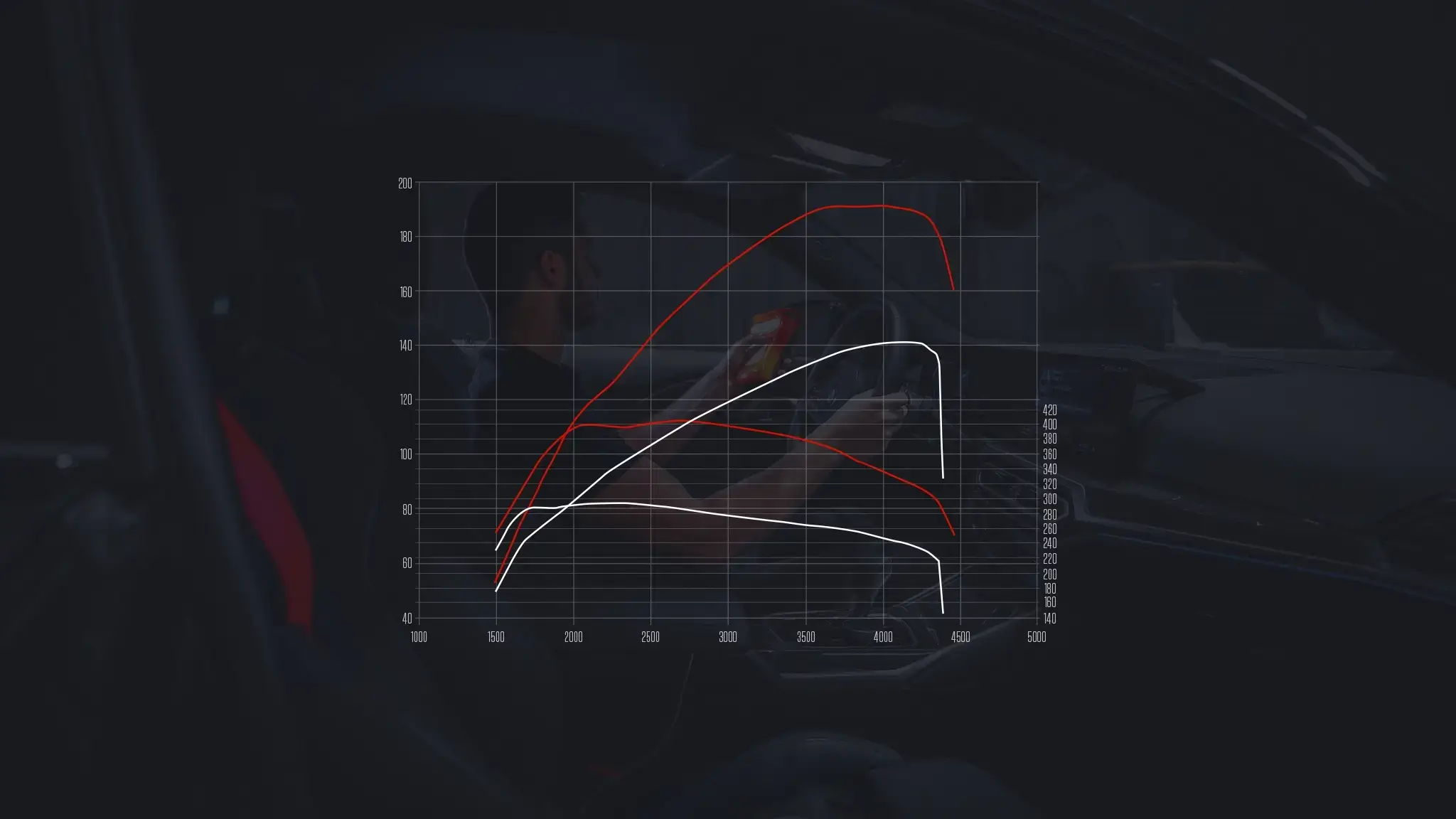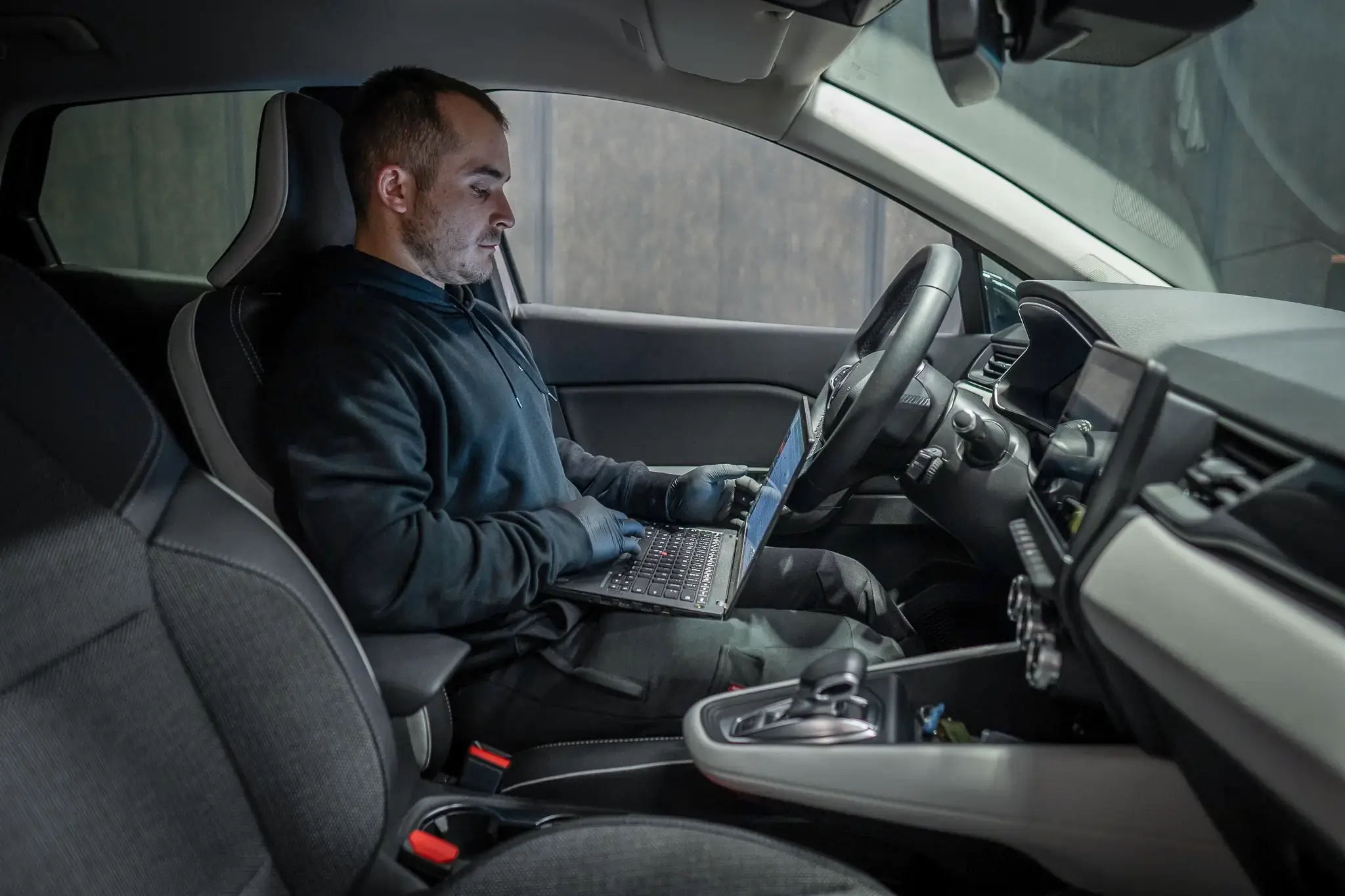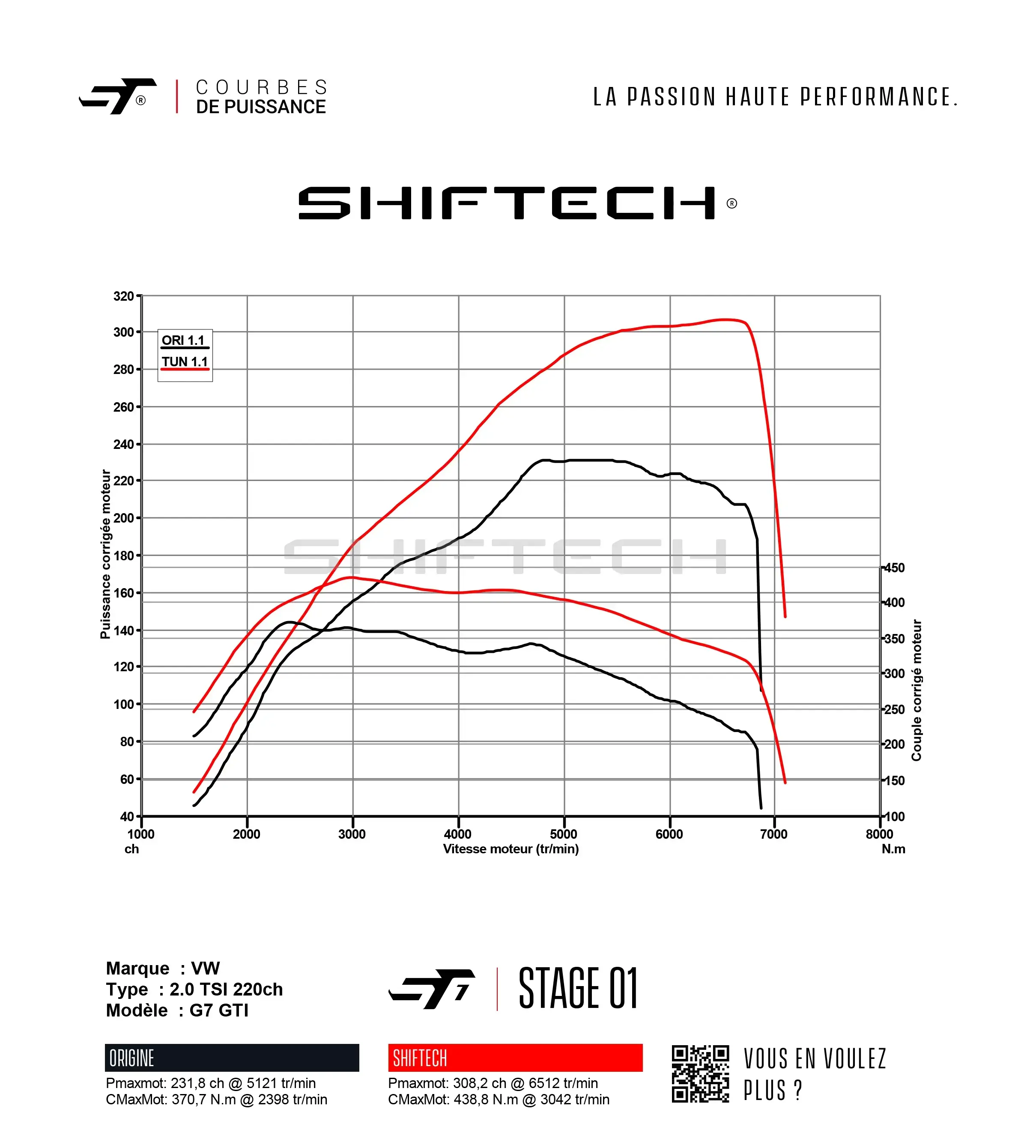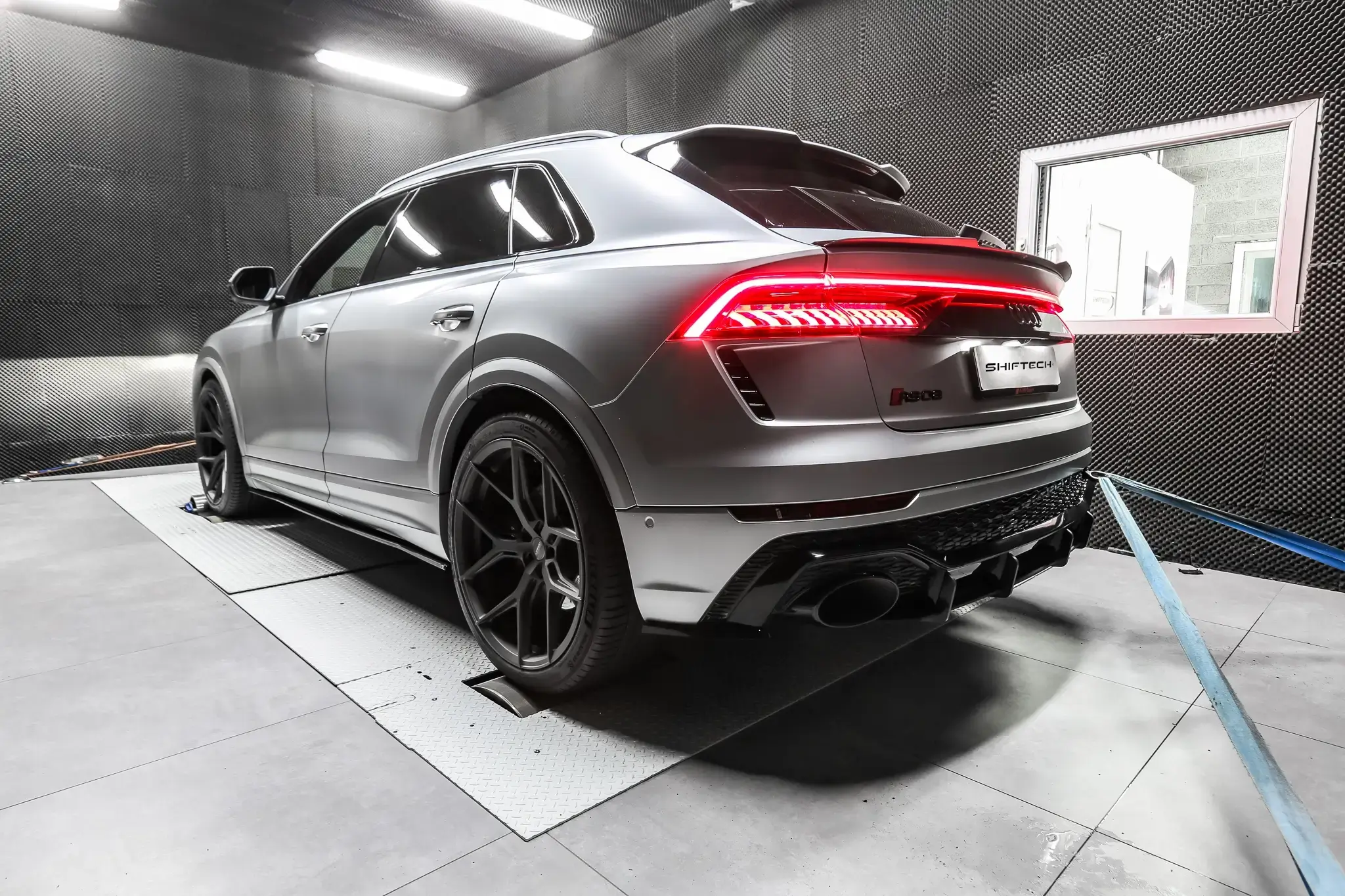
Engine torque and power, the differences
Today, we'd like to take a look at a key subject in our core business: the difference between the torque and power of an engine. This is a subject that is heard everywhere in the engine chiptuning world and more generally in the automotive world. Unfortunately, it's easy to read everything and anything on the subject. This dossier is here to explain these famous differences simply and precisely, and to lift the veil on the subject once and for all.

Torque + Power = Performance
When we talk about a vehicle's performance, two terms constantly come up: torque and power. But what do these values really mean, and why are they so crucial to understanding your car's capabilities?
We'll explore their impact on acceleration, speed and driving pleasure, giving you the keys to choosing your next vehicle or optimising the one you already have.
Engine torque
Engine torque, measured in Newton metres (Nm), is the rotational force that the engine generates on the crankshaft. This force determines the vehicle's ability to accelerate from the very first revolutions of the engine, its so-called'pulling power'. Think of torque as the initial 'pushing force' that sticks you to the seat when you press down on the accelerator. The higher the torque, the faster the car can accelerate, especially at low revs.
Its role in acceleration
Torque has a direct influence on the vehicle's acceleration: a high level of torque available from the lowest revs means an immediate and powerful response as soon as the driver applies the accelerator. This is what we generally appreciate when overtaking in complete safety, where rapid acceleration is often appreciated.
Engine torque - Case study
The larger the engine's cubic capacity, the greater its torque. A 1.4L engine (1400 cc) will be less torquey than a 2.0L engine (2000 cc). The second major factor with a direct effect on engine torque is its architecture. A turbocharged engine will have more torque than a naturally-aspirated engine with the same or even smaller cubic capacity. For example, a 2.0 (2000 cc) turbocharged engine will generally have more torque than a 3.0 (3000 cc) naturally-aspirated engine.

Engine power
The power of an engine, expressed in horsepower (CH ) or kilowatts (kW), reflects its capacity to perform work over a given period of time. Unlike torque, which measures instantaneous force, power reflects what the vehicle can achieve with this force over time. It is directly linked to maximum speed and the vehicle's ability to maintain high performance, especially at high revs.
In fact, why do we say 'horsepower' when we talk about the power of a car?
For a brief cultural aside, we say 'hp' for a car's power, which comes from 'horsepower'. This unit, invented by James Watt, was used to compare the power of his machines with that of horses. In France, horsepower was precisely defined as the power required to lift a weight of 75 kg over 1 metre in 1 second at sea level. This measurement has become a standard for assessing the power of car engines, offering a simple way of visualising their capacity.
Power versus speed
Power is a determining factor in a vehicle's maximum speed and its ability to sustain constant acceleration, particularly over long distances. High power means that the engine can deliver more energy to overcome air resistance and friction.
Calculating power
Power is calculated from torque and engine speed. The formula is as follows:
Power (W) = Torque (Nm) × Speed (rpm) × 2π / 60
This calculation shows that power and torque are linked: an engine may have high torque at low revs, but it's the ability to maintain that torque over a wide range of revs that determines overall power.
In the next section, we'll look at how torque and power work together to optimise a vehicle's performance and how balancing them is crucial to meeting specific driving needs.
Torque and Power, an inseparable duo
Torque and power go hand in hand in the world of automotive performance. Torque represents the brute force available, ideal for starting off and initial acceleration, while power reflects the endurance and maximum speed attainable by the vehicle. A harmonious balance between these two elements is essential for a versatile vehicle, capable of offering both responsive acceleration at low revs and maintaining high performance at maximum speed.
How do you increase the power and torque of your vehicle?
Increasing the power and torque of your vehicle can transform your driving experience, making a vehicle more responsive and dynamic. Engine chiptuning is an effective method of achieving this. It involves adjusting the engine's electronic parameters to improve its response.
Shiftech stands out in this field, offering its customers optimised engine chiptuning solutions that significantly increase power and torque, while preserving engine reliability and durability.

How do you measure a vehicle's torque and power?
To measure a vehicle's torque and power, it is essential to use a power bench. This device enables therotational force (torque) and working capacity (power) of a vehicle's engine to be measured accurately by simulating different driving conditions.
Shiftech uses AutoScan x4 models from Rotronics, a leading French company in this field, in all its centres. These power benches provide detailed and reliable data, essential for optimising vehicle performance.
Would you like to know the power of your vehicle?
If you'd like to find out how your vehicle (car, motorbike, quad, camper van) is doing, and how much power and torque it really has, you can book an appointment at one of our centres for a bench test.
What's the difference between torque and power?
To sum up: Engine torque, measured in Newton metres (Nm), represents the brute force of the engine. Power, on the other hand, expressed in Horsepower-DIN (CH), is an engine's capacity to do work over a given period of time.
Simply put, torque helps you accelerate, power helps you go fast. It's also worth noting that an increase in torque for the same amount of driving leads to a drop in fuel consumption, which in turn saves you money at the pump. Contact Shiftech!